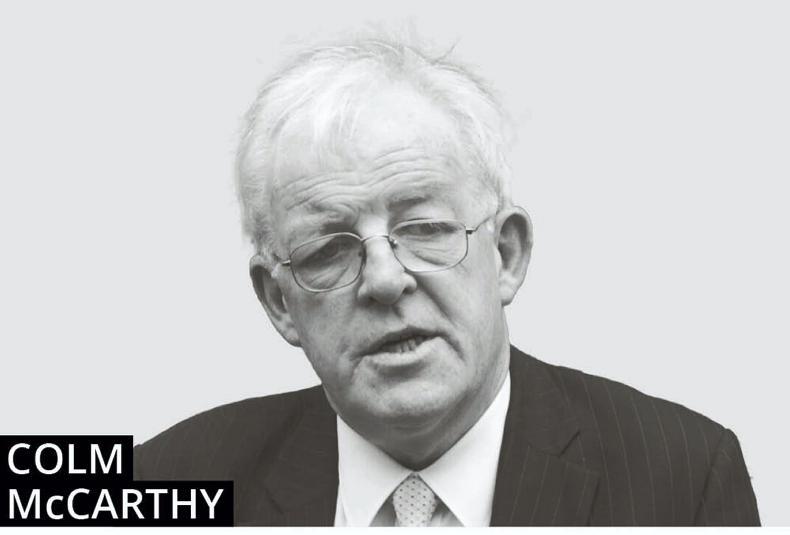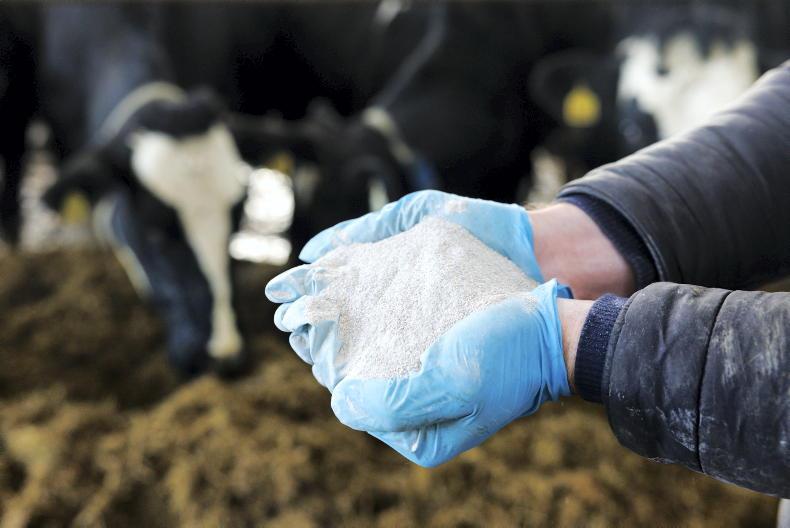In de Bello Gallico, Julius Caeser wrote: “Gallia in tres partes divisa est” – Gaul (France) is divided into three parts. The world economy is also divided into three groups of countries, when assessing their ease of access to Europe’s single market. EU members and a few adjoining countries have full access, gold card membership. A second group has negotiated free trade agreements with the EU and they hold a silver card, while every country in the world enjoys access on the terms enshrined in the World Trade Organisation rules, bronze membership.
Since the WTO rules have almost eliminated tariffs and quotas for a wide range of industrial goods and raw materials, bronze membership does not involve exclusion from single market access, but there are big barriers for agricultural products. Negotiated free trade agreements (FTAs) can include terms that would ease trade in agricultural products and could even approach full market access, in both directions.
There is a withdrawal agreement between the EU and the UK which binds both parties and contains no conditionality about the successful conclusion of a free trade agreement.
What Micheál Martin must fear most is a failure to agree a free trade agreement
Aspirations for an FTA and silver membership are contained in a separate and non-binding political declaration, on which basis talks are continuing but faltering. Micheál Martin has warned that the worst imaginable Brexit outcome for Irish agriculture, the failure to conclude an FTA and hence bronze membership for the UK, is the key assumption on which the 2021 budget, due on 13 October, is being framed. The Government is preparing the budget on the basis that there will be a no-deal Brexit.
“That’s the basis on which we’re preparing the budget and we’re warning and alerting businesses to that terrible reality,” says Martin.
What Micheál Martin must fear most is a failure to agree a free trade agreement, accompanied by the UK choosing to renege on the withdrawal agreement. The ostensible reason for reneging is a desire on the part of the UK government to preserve its own single market, in particular free movement of goods without any customs checks between Britain and Northern Ireland.
There is no conditionality anywhere which provides that the Northern Ireland protocol may be unilaterally abandoned by the UK, should the free trade negotiations fail
Sounds reasonable – except for the awkward fact that the Northern Ireland protocol, conferring single market privileges on Northern Ireland and avoiding a hard border on the island, is part of the binding withdrawal agreement, not part of the aspirational political declaration that accompanied it. There is no conditionality anywhere which provides that the Northern Ireland protocol may be unilaterally abandoned by the UK, should the free trade negotiations fail. Indeed, the withdrawal agreement was trumpeted by Boris Johnson at the time as a negotiating triumph, the principal plank in his successful December election campaign and its winning slogan: ‘Get Brexit Done’.
Brexit has now been done, in the sense that the United Kingdom is, since 31 January last, a non-member of the European Union, entitled to seek a free trade agreement, but not entitled to dictate its terms and expected to honour the terms of the withdrawal agreement, a binding international treaty. It would never have been agreed to had either party suspected the other to have intended an early breach.
There are two possible no-deal outcomes. The UK could end up as a third-country with no FTA while reneging on the withdrawal agreement, or it could accept its terms as binding without an FTA. The EU will see the withdrawal agreement, Northern Ireland protocol included, as a done deal.
If the UK declines to implement it, failing an FTA, that could mean a hard border on the island of Ireland, with its 300 crossing points and an impossible implementation headache for the EU and the Irish Government.
Products emanating from the Republic and exported into continental Europe would come to appear tainted
Should the Irish authorities fail to seal the border, in the second scenario (where the UK reneges), a vista opens, which could become very unpleasant. The Irish land border cannot, for logistic or political reasons or both, be sealed effectively, as the external border of the EU’s single market with a truculent United Kingdom on the other side. Products emanating from the Republic and exported into continental Europe would come to appear tainted – both the Republic and Northern Ireland are generously endowed with wide boys and scam-artists, likely to explore opportunities in a porous border.
The European Union will feel bound to protect the integrity of the single market and would hold the Republic responsible. The result could be checks and controls on products moving from Ireland (tainted) to continental European ports, following an EU conclusion that Ireland had failed in meeting its treaty obligations.
The Irish could blame the Brits and the Europeans would likely be sympathetic, but the Irish Government would be dealing with an unholy mess. The Oxford classicist Johnson needs reminding that ‘dictum meum pactum’ – my word is my bond.
Read more
Beef could be the big loser in Brexit
No-deal Brexit a ‘devastating double whammy’ for farmers
In de Bello Gallico, Julius Caeser wrote: “Gallia in tres partes divisa est” – Gaul (France) is divided into three parts. The world economy is also divided into three groups of countries, when assessing their ease of access to Europe’s single market. EU members and a few adjoining countries have full access, gold card membership. A second group has negotiated free trade agreements with the EU and they hold a silver card, while every country in the world enjoys access on the terms enshrined in the World Trade Organisation rules, bronze membership.
Since the WTO rules have almost eliminated tariffs and quotas for a wide range of industrial goods and raw materials, bronze membership does not involve exclusion from single market access, but there are big barriers for agricultural products. Negotiated free trade agreements (FTAs) can include terms that would ease trade in agricultural products and could even approach full market access, in both directions.
There is a withdrawal agreement between the EU and the UK which binds both parties and contains no conditionality about the successful conclusion of a free trade agreement.
What Micheál Martin must fear most is a failure to agree a free trade agreement
Aspirations for an FTA and silver membership are contained in a separate and non-binding political declaration, on which basis talks are continuing but faltering. Micheál Martin has warned that the worst imaginable Brexit outcome for Irish agriculture, the failure to conclude an FTA and hence bronze membership for the UK, is the key assumption on which the 2021 budget, due on 13 October, is being framed. The Government is preparing the budget on the basis that there will be a no-deal Brexit.
“That’s the basis on which we’re preparing the budget and we’re warning and alerting businesses to that terrible reality,” says Martin.
What Micheál Martin must fear most is a failure to agree a free trade agreement, accompanied by the UK choosing to renege on the withdrawal agreement. The ostensible reason for reneging is a desire on the part of the UK government to preserve its own single market, in particular free movement of goods without any customs checks between Britain and Northern Ireland.
There is no conditionality anywhere which provides that the Northern Ireland protocol may be unilaterally abandoned by the UK, should the free trade negotiations fail
Sounds reasonable – except for the awkward fact that the Northern Ireland protocol, conferring single market privileges on Northern Ireland and avoiding a hard border on the island, is part of the binding withdrawal agreement, not part of the aspirational political declaration that accompanied it. There is no conditionality anywhere which provides that the Northern Ireland protocol may be unilaterally abandoned by the UK, should the free trade negotiations fail. Indeed, the withdrawal agreement was trumpeted by Boris Johnson at the time as a negotiating triumph, the principal plank in his successful December election campaign and its winning slogan: ‘Get Brexit Done’.
Brexit has now been done, in the sense that the United Kingdom is, since 31 January last, a non-member of the European Union, entitled to seek a free trade agreement, but not entitled to dictate its terms and expected to honour the terms of the withdrawal agreement, a binding international treaty. It would never have been agreed to had either party suspected the other to have intended an early breach.
There are two possible no-deal outcomes. The UK could end up as a third-country with no FTA while reneging on the withdrawal agreement, or it could accept its terms as binding without an FTA. The EU will see the withdrawal agreement, Northern Ireland protocol included, as a done deal.
If the UK declines to implement it, failing an FTA, that could mean a hard border on the island of Ireland, with its 300 crossing points and an impossible implementation headache for the EU and the Irish Government.
Products emanating from the Republic and exported into continental Europe would come to appear tainted
Should the Irish authorities fail to seal the border, in the second scenario (where the UK reneges), a vista opens, which could become very unpleasant. The Irish land border cannot, for logistic or political reasons or both, be sealed effectively, as the external border of the EU’s single market with a truculent United Kingdom on the other side. Products emanating from the Republic and exported into continental Europe would come to appear tainted – both the Republic and Northern Ireland are generously endowed with wide boys and scam-artists, likely to explore opportunities in a porous border.
The European Union will feel bound to protect the integrity of the single market and would hold the Republic responsible. The result could be checks and controls on products moving from Ireland (tainted) to continental European ports, following an EU conclusion that Ireland had failed in meeting its treaty obligations.
The Irish could blame the Brits and the Europeans would likely be sympathetic, but the Irish Government would be dealing with an unholy mess. The Oxford classicist Johnson needs reminding that ‘dictum meum pactum’ – my word is my bond.
Read more
Beef could be the big loser in Brexit
No-deal Brexit a ‘devastating double whammy’ for farmers










SHARING OPTIONS